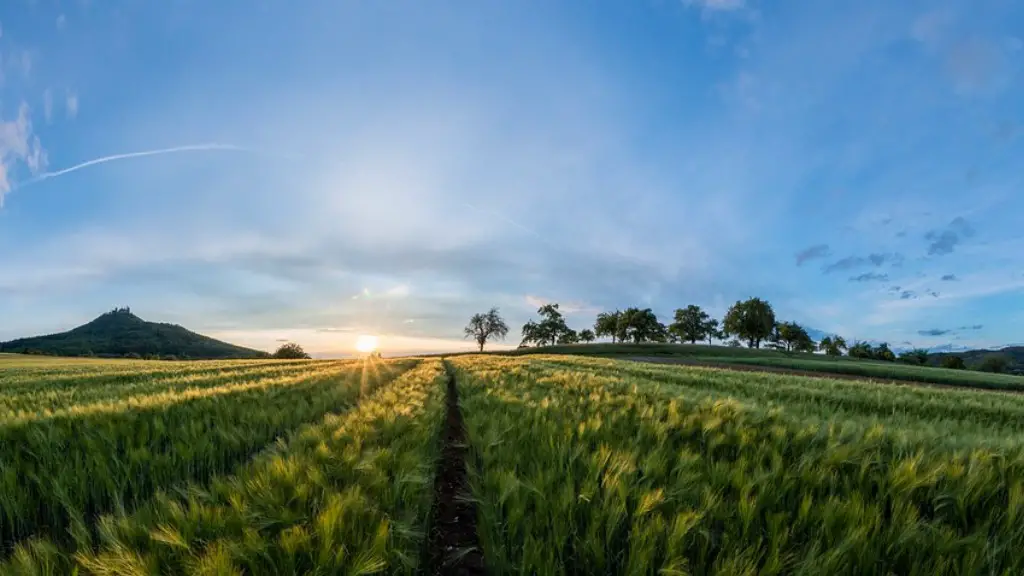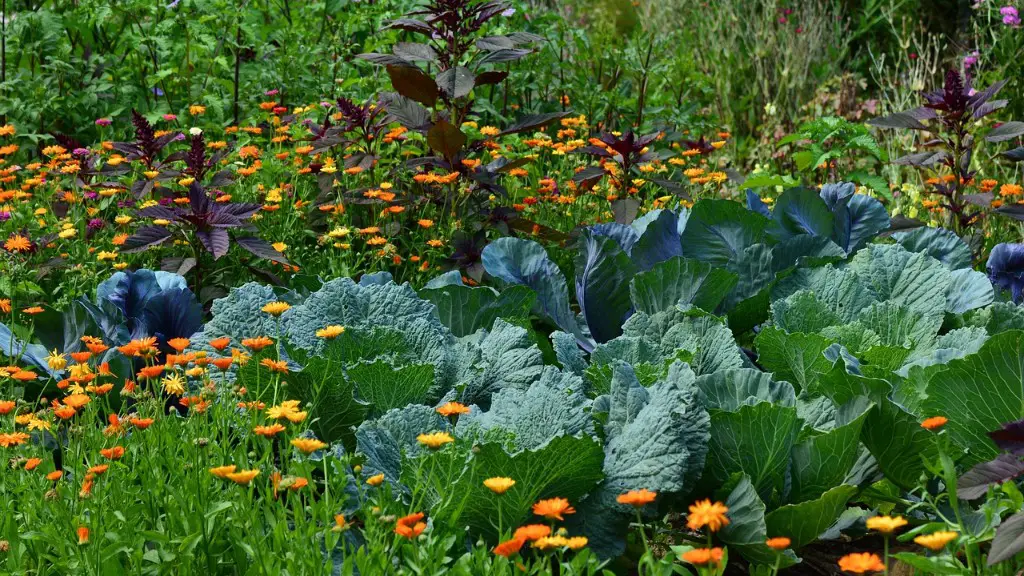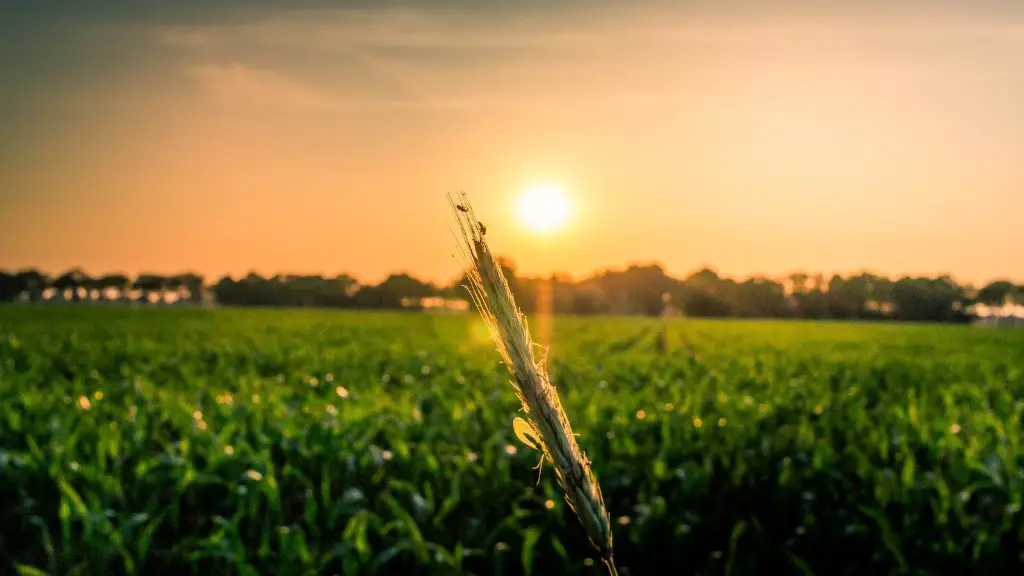The agricultural revolution was a period of technological change in which people began to cultivate crops and domesticate animals for food. This led to the development of civilizations. Agriculture allowed for the growth of cities and the rise of states and empires. It also allowed for the growth of food surpluses, which allowed for the development of trade and commerce. Agriculture has had a profound impact on the development of civilization.
The rise of agriculture led to the development of civilizations. Agriculture allowed for the domestication of plants and animals, which led to the growth of cities and the rise of civilizations. Agriculture also allowed for the growth of food surpluses, which allowed for the development of trade and commerce. The growth of trade and commerce led to the rise of civilizations.
Which is the invention of agriculture that led to civilization?
The Neolithic Revolution was a pivotal moment in human history, marking the transition from small, nomadic bands of hunter-gatherers to larger, agricultural settlements and early civilization. This transition was made possible by the development of new technologies and techniques, such as the domestication of plants and animals, the use of pottery and stone tools, and the construction of shelters and other structures. These innovations allowed for the growth of larger, more complex societies, which in turn led to the development of writing, art, and other forms of cultural expression. The Neolithic Revolution was a key step in the human journey from prehistoric times to the modern world.
The development of agriculture about 12,000 years ago was a turning point in human history. For the first time, people began to settle down in one place and cultivate the land. This led to the rise of civilizations and new ways of life. Agriculture allowed humans to produce food in greater quantities, which led to population growth and new technologies. The agricultural revolution was a key factor in the development of human society.
What is the importance of agriculture in human civilization
Agriculture has been a key factor in the development of human society. It has allowed people to produce surplus food, which can be used in times of need or traded for other goods. Agriculture has also led to the development of permanent villages and the growth of civilizations.
Agriculture is the main source of raw materials for many industries. It is also important to international trade and the economy of many countries. Agriculture plays a big role in a nation’s revenue and can provide employment for many people. It is also crucial to a country’s development. Additionally, agriculture can help heal the environment and is often necessary for war.
How did the development of agriculture most influence the emergence of early civilizations?
The ability to produce surplus food was a key factor in the development of civilizations. This allowed some people to specialize in non-agricultural work, which led to increased production, trade, population, and social stratification.
Agriculture has brought about many important changes in human life. For one, it has allowed us to settle down in one place instead of being constantly on the move. This has allowed us to grow our own food, which has been a huge step forward for our species. Additionally, it has allowed us to develop complex civilizations and cultures.
Why was agriculture important to the development of civilization quizlet?
Farming has had a profound impact on the way communities have developed over time. By making it possible for people to trade goods, farming has made it possible for people to settle in one place and build more permanent homes. This has led to the development of more complex and sophisticated communities.
A civilization can expand through trade by exchanging goods and ideas with other cultures. Conflict can also lead to expansion, as a civilization conquers new territory. Exploration can also help a civilization grow, as it can lead to new discoveries and knowledge about the world.
What is the importance of agriculture in development
Agriculture is the backbone of many industries, supplying raw materials that are used in a variety of products. Without a healthy and thriving agricultural sector, many industries would suffer. Food processing industries, in particular, rely heavily on agriculture for the products they use and sell. This makes the development of these industries directly linked to the success of agriculture.
Agriculture, food, and related industries are vital to the US economy, contributing a significant share of GDP. The output of America’s farms is a crucial part of this, making up a significant proportion of GDP. The agricultural sector is vital to the US economy and Americans must support it to ensure its continued success.
What is the main purpose of agriculture?
The word agriculture is derived from the Latin word ager, meaning field, and from the Greek word graphein, meaning to write. Agriculture encompasses crop and livestock production, aquaculture, fisheries and forestry for food and non-food products. Agriculture was the key development in the rise of sedentary human civilization, whereby farming of domesticated species created food surpluses that enabled people to live in cities. The history of agriculture is often told as a history of the development of new technologies and the transfer of knowledge and skills from one generation to the next.
It is clear that agriculture globally is putting increasing pressure on land and water resources, which often leads to land degradation. This is a major problem because it can cause soil erosion, salinization, and eutrophication. Additionally, agriculture is a major contributor to greenhouse gas emissions. This is a serious issue that needs to be addressed in order to ensure the sustainability of our planet.
How did the Agricultural Revolution impact the evolution of human society
The agricultural revolution had a variety of consequences for humans. It has been linked to everything from societal inequality—a result of humans’ increased dependence on the land and fears of scarcity—to a decline in nutrition and a rise in infectious diseases contracted from domesticated animals. The agricultural revolution was a turning point in human history, and its consequences are still felt today.
Agriculture was the primary livelihood for 90% of the population in Colonial America, and most towns were shipping points for the export of agricultural products. Farms were typically geared toward subsistence production for family use. This meant that families were largely self-sufficient, producing most of what they needed for themselves. However, they also depended on the surrounding community for other goods and services.
How did agriculture influence human settlement?
The Agricultural Revolution allowed people to stay in one place and increased food production, which caused the population density to expand far beyond levels that could be sustained by hunting and gathering alone. This growth in population density provided a critical mass of people to sustain and spread contagious infectious diseases.
Agriculture is the main source of raw materials for many industries, including cotton and jute fabric, sugar, tobacco, and edible and non-edible oils. Other industries that rely heavily on agriculture for raw materials include fruit and vegetable processing and rice husking.
Conclusion
The agriculture allowed for the development of civilizations because it allowed for the domestication of plants and animals. This allowed for a sedentary lifestyle which led to the development of cities and civilizations.
In conclusion, agriculture led to the development of civilization by providing the food necessary to support a growing population, and by the domestication of plants and animals which led to improved technologies and understandings of the natural world. Agriculture allowed for the growth of cities and the rise of civilizations, and has played a pivotal role in human history.




